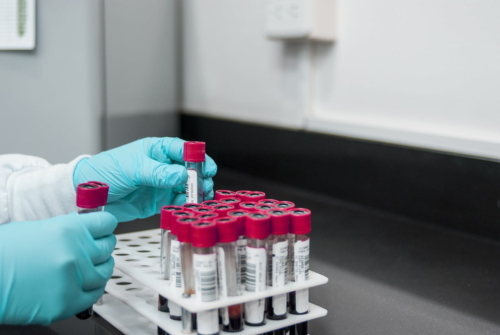A young man hides his HIV status and spreads it to two others by having unprotected sex with them.
Being fully aware of his HIV infection, a young man hid it and had sexual relations with young people between 24 and 30 years of age without any kind of protection, which is why they have been infected.
One of these young men, last January, faced with the need to take his case to court, turned to the law firm Aránguez Abogados. The firm took on his case as Pro Bono and is thus acting as the private prosecutor for one of the young people affected. The accused has followed this same modus operandi with at least two other people, including a former partner.
The complaint has been lodged with an examining magistrate’s court in Andalusia and has already been admitted for processing by the judge. The accused is accused of having committed an alleged offence of assault and battery, as defined in article 149.1 of the Penal Code, which carries a penalty of 6 to 12 years’ imprisonment.
The alleged offender deliberately concealed the fact that he had HIV. His main excuse was that he was completely healthy, because a relative of his suffers from leukaemia cancer and he, being a bone marrow donor, was tested every two to six months and these, according to him, were always correct.
He deceived the other young victim in this way, with the sole intention of having unprotected sex. Even if this meant infecting another person with a virus that is incurable to this day.
The complainant, after getting to know the accused, ended up having intimate relations with him. After some time he began to feel unwell and decided to go to the doctor, who gave him the bad news that he had contracted HIV. She immediately called the defendant, as he was the only person with whom she had had such relations in all that time. He reacted too naturally, which caused surprise and mistrust in the victim, as he was very frightened. The accused denied having this disease and assured that he would prove it with his analysis, but he never showed it to his then friend.
Faced with uncertainty and mistrust, the victim ended up contacting the last ex-partner of the alleged infectious person, who confirmed that he was fully aware of his illness and that he also deliberately hid it from her and ended up infecting her.
In order to clarify the alleged commission of the crimes denounced, Aránguez Abogados has proposed, among other measures, that the alleged contagious person be declared as an investigator; that his criminal record be included in the case; that a statement be received from the victim as an injured party; and that the medical records of the accused be provided. In addition, the statement of his ex-partner, who was also his victim, has also been requested.
With this Pro Bono case, the firm seeks to establish jurisprudence on whether a judge can require someone to warn their sexual partners that they suffer from a contagious disease before having sex with them.
Un joven oculta tener VIH y contagia a otros dos al tener relaciones sexuales sin protección con ellos
Siendo plenamente consciente de su infección por el VIH, un joven la ocultó y mantuvo relaciones sexuales con jóvenes de entre 24 y 30 años sin ningún tipo de protección, por lo que estos han sido contagiados.
Uno de estos jóvenes, el pasado mes de enero, ante la necesidad de llevar su caso ante la Justicia, acudió al despacho Aránguez Abogados. El bufete asumió su caso como Pro Bono y ejerce así la acusación particular de uno de los jóvenes afectados. El acusado ha seguido este mismo modus operandi al menos con otras dos personas, entre ellas, una expareja suya.
La denuncia se ha presentado en un juzgado de instrucción de Andalucía y ya ha sido admitida a trámite por el juez. Se acusa al denunciado de haber cometido un presunto delito de lesiones, tipificado en el artículo 149.1 del Código Penal, cuya pena es de 6 a 12 años de prisión.
El presunto contagiador ocultó deliberadamente que padecía VIH. Su principal excusa era que estaba completamente sano, porque un familiar suyo padece cáncer de leucemia y él, al ser donante de médula, se realizaba pruebas cada dos o seis meses y estas, según él, resultaban siempre correctas.
Engañó de esta forma a la otra joven víctima, con el único ánimo de mantener relaciones sexuales, sin protección. Aunque eso supusiera contagiarle a otra persona un virus que a día de hoy es incurable.
El denunciante, tras ir cogiendo confianza con el acusado, terminó manteniendo relaciones íntimas con él. Al cabo del tiempo comenzó a sentir malestar y decidió acudir al médico, este le dio la mala noticia de que había contraído VIH. Llamó inmediatamente al acusado, ya que era la única persona con la que había mantenido este tipo de relaciones en todo ese tiempo. Este reaccionó con excesiva naturalidad, cosa que generó sorpresa y desconfianza en la víctima, puesto que él si estaba muy asustado. El denunciado negó tener esta enfermedad y aseguró que lo demostraría con su análisis, pero nunca llegó a mostrárselo a su entonces amigo.
Ante la incertidumbre y desconfianza, la víctima terminó contactando con la última expareja del presunto contagiador, la cual le confirmó que este era plenamente consciente de su enfermedad y que también se lo ocultó deliberadamente y terminó contagiándole.
Con el fin de esclarecer la presunta comisión de los delitos denunciados, desde Aránguez Abogados se ha propuesto la declaración en calidad de investigado del presunto contagiador, entre otras medidas; que se incorporen al caso sus antecedentes penales; que se reciba declaración en calidad de perjudicado de la víctima y que se aporte el historial médico del acusado. Además, también se ha solicitado la declaración de su expareja, que también fue víctima suya.
Con este caso Pro Bono, el despacho busca asentar jurisprudencia sobre si un juez puede exigir a alguien que advierta a sus parejas sexuales que padece una enfermedad contagiosa antes de mantener relaciones con ellas.




